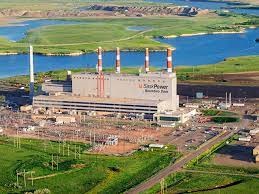We finally got to see what Saskatchewan Premier Scott Moe is talking about, with regards to taking on the federal government’s climate change initiatives. And it’s a constitutional swing for the fences.
What was remarkable, however, is how rest of the media didn’t seem to fully get it.
None seemed to truly understand what this act is about. Maybe they didn’t read the whole act.
I did. Every word.
The Saskatchewan First Act is about maintaining power production and farm production in this province above all else.
Yes, there’s talk about natural resources. But it really comes to keeping the lights on and people fed. Those are two things the federal government seems to not care too much about.
Since SaskPower started posting daily power production numbers, I’ve been trying to keep an eye on it each day, as much as possible. And this is what I found out: on any given day, coal and natural gas are providing a combined 65 to 84 per cent of our power. On Oct. 3, coal and natural gas were each providing 42 per cent of our power.
And the federal government doesn’t like that.
First, they’re charging an ever-increasing carbon tax designed to make burning any fossil fuel so increasingly expensive, no one will wish to do it because they can’t afford to do it. It’s a tax-it-till-it-dies strategy. And they are explicitly ordering all conventional coal-fired power production to end by 2030, which is seven years and two months from now. That’s about 90 per cent of our coal-fired capacity, the remainder being “clean coal,” with carbon capture.
And now, the new Clean Electricity Standard the feds are seeking to implement is saying no more fossil fuel power production, period, except in extenuating circumstances, by 2035. So that means no more natural gas, either. And we are currently building a natural gas-fired power plant at Moose Jaw and will soon be building another at Lanigan.
So if these federal regulations are in fact enacted, we will lose nearly all of our power production in this province.
But maybe we’ll build wind and solar power, and a whole bunch of batteries for when the sun doesn’t shine and the wind doesn’t blow?
Alberta’s been doing that. They built four large grid scale batteries, three each at 20 megawatts, and one at 10. And from Oct. 7 to Oct 31, not one of those batteries contributed a single megawatt to the grid. On Halloween, one battery contributed 15 megawatts for 58 minutes. A second battery contributed 10 megawatts for 29 minutes at supper time on Halloween, and seven megawatts for two hours and one minute on Nov. 1. That’s it, for something close to $100 million in batteries.
And the absolute earliest SaskPower thinks we could have one, singular, nuclear reactor online is 2035. Maybe we should start calling that Judgment Day, a la The Terminator.
So the government of Saskatchewan could comply with federal climate change initiatives aiming for net zero by 2035, and we all literally freeze in the dark. Or it could tell the feds to pound sand with some form of provincial veto on these federal initiatives.
We’re not going to freeze, is what the Moe government is saying. Enter the sand, stage right.
The other key aspect is farming. With the federal government moving to reduce usage of nitrogen fertilizer, again in the name of fighting climate change, it will mean our farmers will be able to produce less, meaning not only less income, but less food for all. As in all of humanity, because we feed a good chunk of the world. And doesn’t farming sequester carbon in the first place? Or so we’re told?
And then there’s the carbon tax. It wasn’t mentioned specifically in the act, like fertilizer and electricity production were, but it’s also a key factor.
Expect Saskatchewan to soon say something like “Yeah, we emit carbon dioxide to keep our lights on and feed our kids, but our farmers and trees capture CO2 as well. So we’re going to call it even. Good day to you, Ottawa.”
And we will be the first to say it. Saskatchewan First.
Brian Zinchuk is editor and owner of Pipeline Online, and an occasional contributor to the Frontier Centre for Public Policy. He can be reached at brian.zinchuk@pipelineonline.ca.



